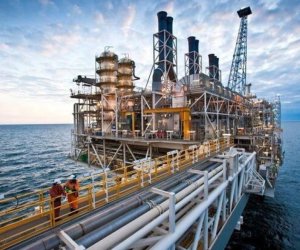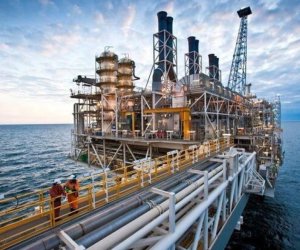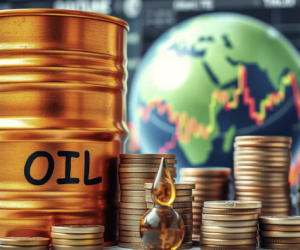Oil stable after two-day decline on stall in global growth

Oil prices stabilized on Wednesday after falling for two straight days on concerns that slowing economic growth and rising Middle East output would extend a global supply overhang.
International Brent crude futures LCOc1 were trading at $44.95 per barrel at 12.45 a.m. ET, down 2 cents from their last settlement.
U.S. West Texas Intermediate (WTI) futures were up 7 cents at $43.72 a barrel.
This followed two trading sessions in which Brent fell nearly 7 percent and WTI nearly 5 percent from end-April levels, with crude pulled down by rising output from the Middle East and renewed signs of economic slowdown in Asia.
"Asia's big markets continue to disappoint: Japan sank further, China relapsed, and India slipped," said Frederic Neumann of HSBC in Hong Kong, adding that exports were "stuck below the waterline" and "local demand looks wobbly, too."
In the United States, the economy is also stuttering.
"Year-on-year factory orders dropped for a 16th straight month," said the U.S.-based Schork Report. "The U.S. is set for sub-3 percent growth for a record 11th year," it said.
In oil production, U.S. output has fallen from a peak of over 9.6 MILLION barrels per day (bpd) in summer last year to just over 8.9 million bpd currently. That, traders said, has helped lift oil prices away from decade lows under $30 per barrel touched earlier this year.
barrels per day (bpd) in summer last year to just over 8.9 million bpd currently. That, traders said, has helped lift oil prices away from decade lows under $30 per barrel touched earlier this year.
 barrels per day (bpd) in summer last year to just over 8.9 million bpd currently. That, traders said, has helped lift oil prices away from decade lows under $30 per barrel touched earlier this year.
barrels per day (bpd) in summer last year to just over 8.9 million bpd currently. That, traders said, has helped lift oil prices away from decade lows under $30 per barrel touched earlier this year.However, the country's crude inventories rose by 1.3 million barrels in the week to April 29 to 539.7 million barrels, according to data from the American Petroleum Institute, enough to meet global demand for almost a week.
Still, strong demand for refined products reduced stockpiles of gasoline, diesel and heating oil.
Thanks to ongoing strong demand and further expectations of U.S. production cuts oil prices would likely rise in the short-term, BMI Research said on Wednesday.
"We anticipate a strong pullback in non-OPEC supplies. We also expect some support from the U.S. (summer) driving season. Bloated crude stocks will thus unwind in the coming months," BMI said.
"We believe prices will strengthen above $50 per barrel, trading in a range of $50-$60 per barrel until the end of the year," it said.
(reuters.com)
www.ann.az
Similar news
Similar news




































 Photo
Photo 



 Video
Video 

